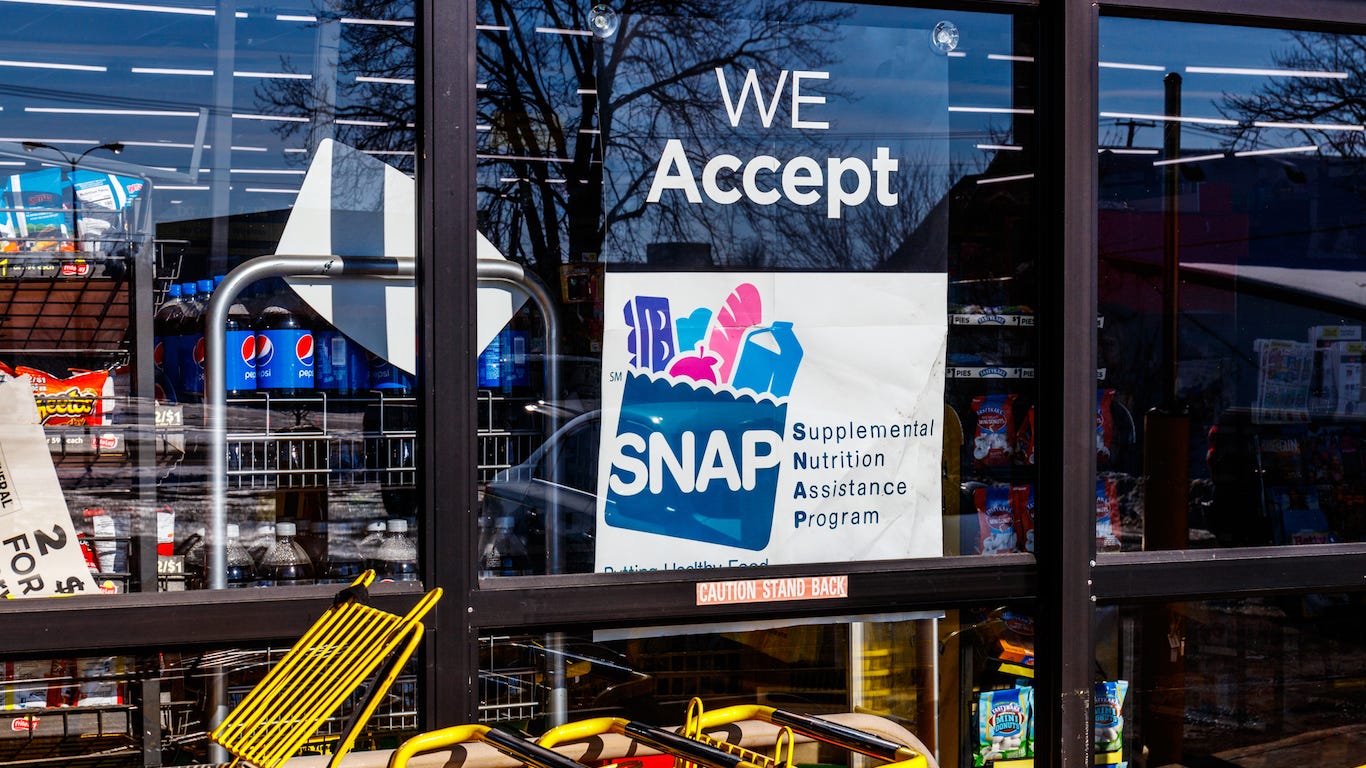“The government says pull yourself up by your bootstraps and I’m trying to… I just keep getting knocked down over and over and over again” lamented Andrew Hubbard, a Kansas resident with three felony drug convictions. Because of his criminal record, Hubbard is ineligible to receive Supplemental Nutrition Assistance Program (SNAP) benefits in his home state of Kansas. Consequently, he lives in a state of uncertainty, knowing that if he falls on hard times—gets sick, loses his job, or otherwise needs help—he does not have the social safety net that catches many other Americans when they fall.
Kansas is one of many states that has elected to preserve the federal government’s prohibition on welfare benefits for people with felony drug convictions. These restrictions were put in place by the 1996 Personal Responsibility and Work Opportunity Reconciliation Act (PRWORA), which passed in 1996 under former President Bill Clinton and a Republican-controlled Congress, and sought to “end welfare as we know it” in the words of Clinton. One way it did so was by denying food stamps (through SNAP) and cash assistance (through Temporary Assistance for Needy Families, or TANF, funds) to convicted drug felons.
Fortunately, as the political tide has begun to turn against War on Drugs-era policies, 26 states and the District of Columbia have eliminated restrictions on TANF benefits and 28 have done the same for SNAP. However, restrictions or bans remain in far too many states. And just this year, proposals in both Kansas and Nebraska that would have eased eligibility requirements for felons seeking SNAP benefits died in the legislature. These states, along with all other states that maintain full or partial bans on welfare eligibility, must immediately exercise their rights to opt out of the federal government’s restrictions. Doing so is both ethically imperative and good public policy.
With or without welfare, criminal re-entry in the United States is an arduous process. Among other challenges, formerly incarcerated individuals face significant barriers to not only obtaining employment, but also earning livable wages if they do find a job. The Prison Policy Initiative estimates that the unemployment rate for ex-prisoners is 27 percent, almost five times greater than that of the general US population. Furthermore, the Brookings Institution found that median annual earnings for the formerly incarcerated is a meager $10,090.
These challenges mean felons are far more likely than their counterparts without criminal records to need the benefits offered by SNAP and TANF. In fact, in one study, 91 percent of individuals who had been recently released from prison experienced food insecurity. A different study based out of Rhode Island found that over 70 percent of people re-entering society from prison lacked reliable access to food, compared to a rate of less than 13 percent for the state’s general population.
The burdens of these challenges are not shared equally: 57 percent of prisoners incarcerated for drug crimes are Black or Latino despite the fact that these groups cumulatively comprise less than 32 percent of the nation’s population. Moreover, because many people with felony records support children, eligibility restrictions not only harm felons themselves, but also perpetuate cycles of poverty within their families and communities. About 20 percent of Native children have at least one parent who has experienced incarceration. And because women are disproportionately likely to be incarcerated for drug crimes, mothers—particularly mothers of color—are disproportionately impacted by the PRWORA.
While arguments that draw lines between the deserving and undeserving poor ought to be prima facie rejected when it comes to questions of human rights like food access, the impact of restrictions on families and communities also makes these delineations moot. Legislators should call attention to these detrimental impacts to make the case for expanding food stamp eligibility as a means of breaking cycles of poverty and racial inequality.
In addition to helping the most vulnerable meet their basic needs, opting out of the PRWORA restrictions would also allow states to curb crime, a topic whose importance is rising among the American public right now. It is well-documented that poverty is criminogenic whereas access to basic necessities like food is integral to successful re-entry. In fact, a study published by Harvard Law School found that formerly incarcerated people who qualified for welfare were significantly less likely to recidivate—eligible felons were up to 10 percent less likely to be re-incarcerated within the first year of their release than those who were ineligible for benefits.
SNAP and TANF recipients also qualify for additional public services, like vocational training and childcare support, which further decrease recidivism. Some, like Nebraska State Senator Megan Hunt, contend that by decreasing recidivism, expanding benefits would also save taxpayer dollars in the long-run due to the high costs of incarceration.
By eliminating counterproductive restrictions on SNAP and TANF benefits, states have an opportunity to begin moving forward from failed War on Drugs policies. They can instead move toward a more just future by affirming access to food as a human right. In doing so, they would help build safer, healthier, and stronger communities.
